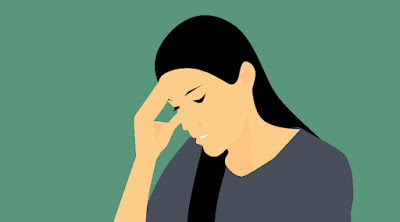Simple Ways to Relieve Migraines Naturally.
Migraine headaches are one of the most common types of headaches. These headaches are typically characterized by pulsing or throbbing pain, nausea, and increased sensitivity to light, sound, or smell. Many people experience an "aura" before a migraine, with symptoms including visual changes, feelings of déjà vu, tingling around the mouth, and numbness in the arm or leg.
Migraines can start at any age but most often begin in adolescence or early adulthood. Migraine disorders are often inherited and have a genetic predisposition that is related to certain neurotransmitter genes. There may be triggers for some migraineurs such as stress, lack of sleep, too much caffeine consumption, hormonal fluctuations in menstruation cycles, weather changes (especially barometric pressure), bright lights or loud noises.
It’s important to address your migraines as soon as they occur because they can easily become chronic if not managed properly. Here are some simple ways to relieve migrain.
What are migraines?
Migraine headaches are characterized by throbbing pain, nausea, and increased sensitivity to light, sound, or smell. Someone who experiences migraines will typically experience an "aura" before the headache starts. This aura includes visual changes, feelings of déjà vu, tingling around the mouth, numbness in an arm or leg.
Migraine disorders are often inherited and have a genetic predisposition that is related to certain neurotransmitter genes. There may be triggers for some migraineurs such as stress, lack of sleep, too much caffeine consumption, hormonal fluctuations in menstruation cycles, weather changes (especially barometric pressure), bright lights or loud noises.
It’s important to address your migraines as soon as they occur because they can easily become chronic if not managed properly. Here are some simple ways to relieve the symptoms of a migraine:
- Take over-the-counter medication like ibuprofen or naproxen
- Drink plenty of fluids
- Rest in a dark room
- Apply a cold pack or ice for 20 minutes at a time on your forehead
- Take acetaminophen
How can I prevent migraines?
There are a number of ways to prevent migraines. Identifying and avoiding triggers is one of the most important steps in preventing migraines from becoming chronic.
Trigger identification, avoidance, and treatment should be done as soon as you experience a migraine. There are also some home remedies that can help with symptoms of a migraine. These include:
- Drinking water
- Taking a hot shower
- Eating something light like toast or crackers
- Medication, such as ibuprofen or acetaminophen for pain relief
What are the triggers for migraines?
There are many triggers for migraines, and these triggers often differ from person to person. Some common migraine triggers include:
-Stress
-Lack of sleep
-Too much caffeine intake
-Hormonal fluctuations in menstruation cycles
-Weather changes (especially barometric pressure)
-Bright lights or loud noises.
How do I know if I have a migraine?
Different people experience migraine differently. Some of the most common symptoms include throbbing, pulsing head pain; sensitivity to light, sound, or smell; nausea; and increased sensitivity to touch.
The pain intensity can range from mild to severe. Migraine headaches are often accompanied by an "aura" that is typically visual or sensory in nature.
An aura usually precedes a headache by about 15 minutes and lasts up to an hour.
Some people also experience what is known as a "prodrome"—a feeling of tiredness, irritability, depression, or constipation (or diarrhea) which can occur before the onset of a migraine attack.
Some other symptoms may include: feeling unusually hungry or thirsty; vomiting; blurred vision; extreme fatigue; neck stiffness; trembling muscles in arms and legs.
If you experience any of these symptoms, it's important to immediately seek medical attention so you can get treatment for your migraine headaches.
When should I seek medical attention for my migraine?
If your migraine is accompanied by any of these symptoms, it's time to visit a doctor:
* Severe pain not relieved by medication
* Pain lasting more than 72 hours
* Nausea and vomiting
* Sensitivity to light and sound
* Vertigo or dizziness
* A sensation that the surroundings are moving or spinning ____
Treating your migraine at home
If you experience a migraine for the first time, get to know your symptoms and treatment options. The best way to prevent migraines is to learn how to identify the triggers and avoid them.
If you experience a migraine at home, take some pain relievers like ibuprofen or acetaminophen; drink fluids; get rest; and stay in a dark and quiet room.
You might also try over-the-counter medications such as Excedrin, Tylenol, or Midrin tablets. These should help with the pain and nausea while you wait for your doctor or pharmacist to fill your prescription. You can also find relief by applying ice packs to reduce swelling in the brain tissue.
Conclusion
Migraines are debilitating headaches that are often caused by changes in the environment, stress, or foods. With the right steps, you can learn how to relieve your migraines naturally.



0 Comments